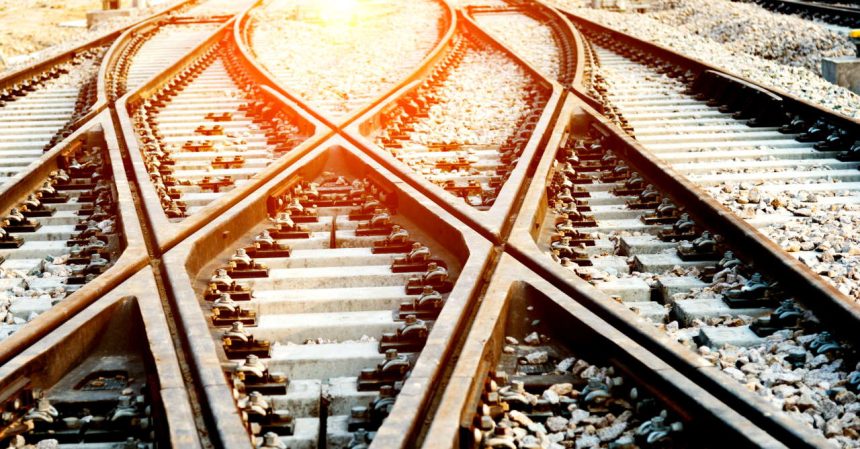New report by Rail Partners brings a message for the Government to take action now in order to get customers back on track with train travel.
The new association created for independent passenger and freight rail companies has urged the Government to progress recovery which in turn would provide funding which would see growth, cutting the taxpayer's railway burden and avoiding the network's decline with fewer services.
The report is called ‘Fork in the Tracks: Attracting Customers Back to the Railway' and is focused on attracting customers back to rail travel. Rail Partners believe that the contractual system was a good fit to get the railway through the pandemic, however, further work is required for it to move at a greater pace. Revenues are currently around 20% less than when compared to pre-pandemic levels alongside six months of industrial action which has left a huge hole within the industry's finances of which taxpayers contribute approximately £2bn more each year than pre-pandemic. The rail industry has seen that this is not a viable solution and that these ongoing issues are hindering its ability to provide for its customers.
Utilising private sector expertise will be essential in supporting a speedy rail recovery in order to reduce the gap in industry finances. Oxera is an independent economic analyst and their research has revealed that the Treasury is missing out on as much as £1.6bn through two years because of restrictive contracts for rail operators which have reduced their drive for recovery to see passenger numbers grow.
A selection of measures has been put forward by Rail Partners and fall within the framework of the Government's ‘Plan for Rail' and would build in the necessary freedoms and flexibility of current National Rail Contracts and therefore the new Passenger Service Contracts.
The measures include:
- Activate and put in place mechanisms in National Rail Contracts that facilitate operators to invest and innovate to accelerate revenue growth for the financial year 2023/2024 and into the future
- Provide operators with enough influence over commercial levers, such as timetabling, marketing and fares, to respond to new incentives and improve the offer to customers.
- Evolve mechanisms in future Passenger Service Contracts that are in keeping with the ‘Plan for Rail's ambition of creating a spectrum of contracts
- Reunite cost and revenue to avoid a sole focus on cost reduction that is negatively impacting customer experience and revenue generation.
The growth of revenue is vital to ensure long-term sustainability for the rail sector. The extra revenue secured could be used to bring down the taxpayer's bill in subsidising the railway and improving customer experience.
With inflation at a high and substantial pressure on public finances, it is crucial that steps are taken now in order to steer clear of a decline in the railway. Reducing pressure to cut costs via service cuts would aid a smaller rail network in moving forward which in turn would undermine the larger economic and environmental objectives which a flourishing railway would support.
Rail Partner's advice comes after RMTs confirmation of more strike action leading up to the Christmas and New Year period. Industrial action has cost the rail sector and therefore the taxpayer an estimated £320m through lost revenues which will see the wider economy affected to the tune of around £700m.
Rail Partners' Chief Executive, Andy Bagnall, said: ‘If we don't challenge the status quo and overhaul the contractual model on the railways to enable operators to better attract customers, our research shows the Treasury will miss out on nearly £1.6bn revenue over the next two years.
‘The gap in rail finances cannot be closed by cost savings alone – in fact, a sole focus on reducing costs risks a spiral of decline, with cuts to services putting passengers off using rail, leading to further cost pressures and further cuts.
‘To secure the financial sustainability of the sector, encourage private sector innovation and investment, and ultimately protect service levels and jobs, operators must be given greater freedoms to attract customers back and help the network return to growth. This can be done now, without legislation and we look forward to working with the Department for Transport to develop and implement such reforms.'

The penultimate paragraph seems to suggest that a reminder of the results of the Beeching approach is required
As a leisure user, I don’t use the train for anything other than local travel, the reason, COST.
For example, two travelling Bristol to London to Bristol on a Sunday, cost £134.40, with a Two Together Railcard, £88.70. By car, 18 litres of fuel @ 174.9p, £31.48.
In today’s cost-conscious times, a no brainer on the mode of travel which makes increasing passenger numbers a real challenge plus the effect on revenue as a by-product.
Is a block capital cost higher than a lower case version? Additionally, you have only mentioned part of the avoidable cost of car use; factor in all costs including fixed overheads: capital tied up or hire charges, parking etc. and then calculate the true cost per mile for a meaningful comparison.
Indeed, the AA/RAC can provide just such a proper cost. Check out the mileage rates allowed by HMRC for employees to claim mileage allowances from their employers.